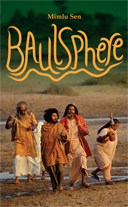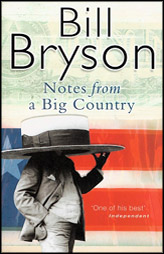It was as if I had privately discovered life on another planet, or a parallel universe where life was at once recognizably similar but entirely different. I can't tell you how exciting it was. Insofar as I had accumulated my expectations of Australia at all in the intervening years, I had thought of it as a kind of alternative southern California, a place of constant sunshine and the cheerful vapidity of a beach lifestyle, but with a slightly British bent - a sort of Baywatch with cricket…' Of course, what greeted Bill Bryson was something rather different. Australia is a country that exists on a vast scale. It is the world's sixth largest country and its largest island. It is the only island that is also a continent and the only continent that is also a country. It is the driest, flattest, hottest, most desiccated, infertile and climatically aggressive of all the inhabited continents and still it teems with life - a large proportion of it quite deadly.
Bill Bryson was born in Des Moines, Iowa, in 1951. A backpacking expedition in 1973 brought him to England where he met his wife and decided to settle. He wrote for the English newspapers The Times and The Independent for many years, writing travel articles to supplement his income. He lived with his family in North Yorkshire before moving back to the States in 1995, to Hanover, New Hampshire, with his wife and four children. In 2003 he and his family moved back to England, where they currently reside.
The Lost Continent, Bill Bryson's hilarious first travel book, chronicles a trip in his mother's Chevy around small town America. Since then, he has written several more, including notable bestsellers, A Walk in the Woods, I'm A Stranger Here Myself (published in Britain as Notes from a Big Country), and In a Sunburned Country (published in Britain as Down Under).
His other books include Bill Bryson's Dictionary of Troublesome Words, Neither Here nor There: Travels in Europe, Made in America, The Mother Tongue and Bill Bryson's African Diary. His latest book, A Short History of Nearly Everything, was published in Spring 2003.
You need to log in to Rate the book
































